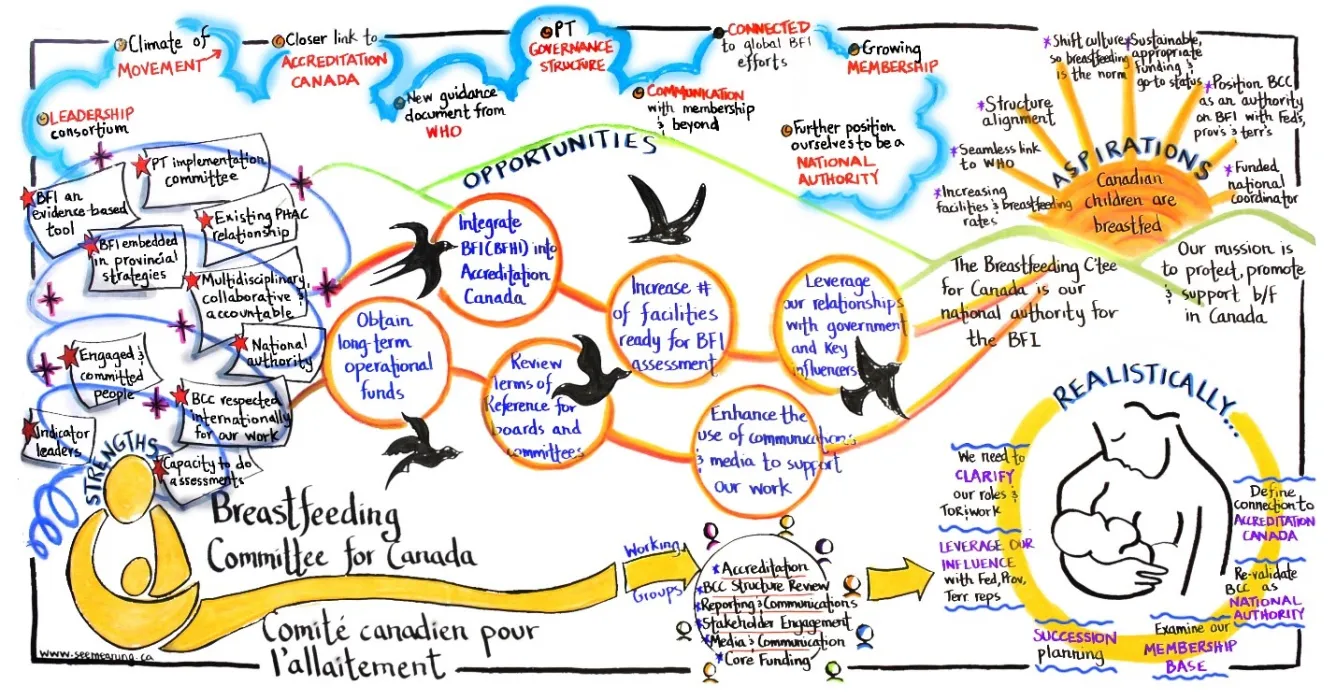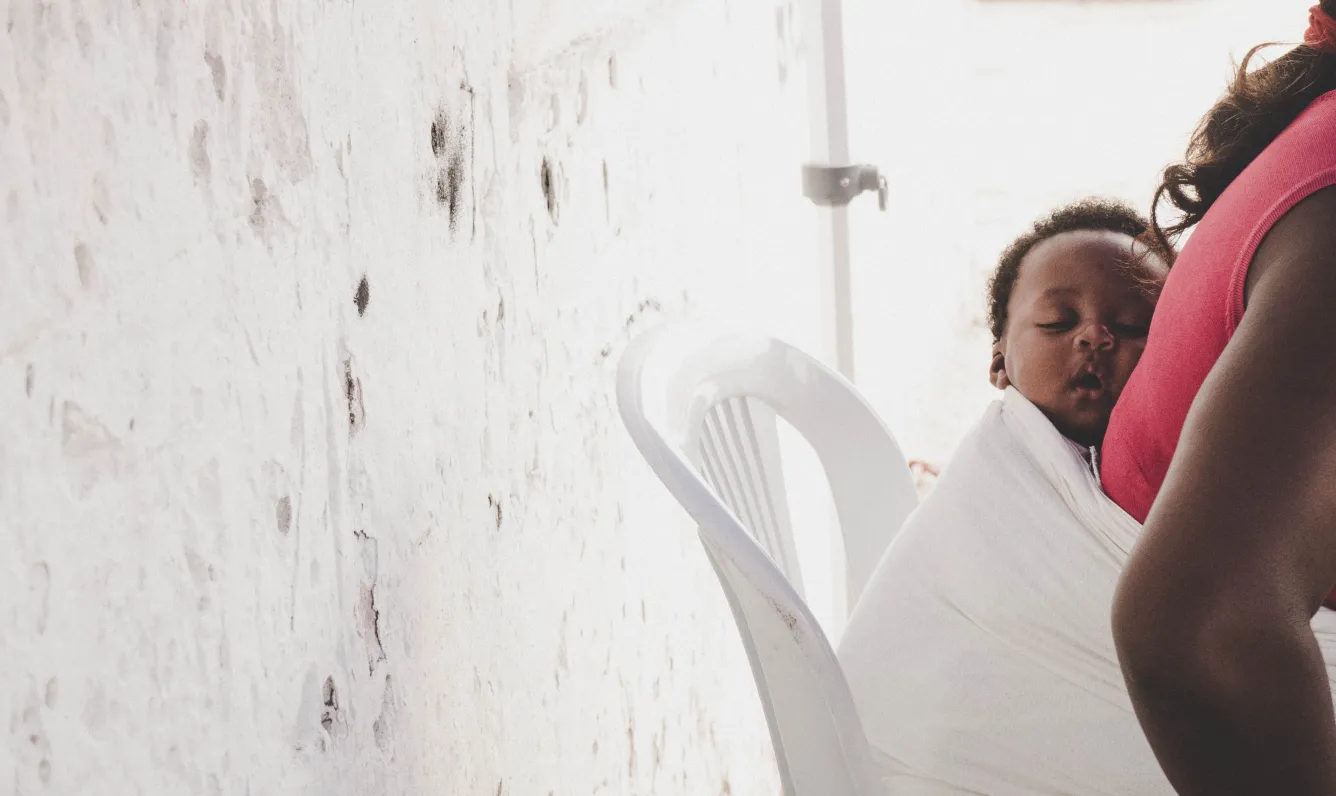
Guest blog by Kathy O’Grady Venter and Marianne Brophy. Kathy (Toronto) and Marianne (Vancouver) are both IBCLCs (1990) and UNICEF-trained BFI assessors and educators (1994), working on the implementation and assessment of the BFI in Canada and internationally.
As a duo of seasoned Baby-Friendly Initiative supporters, we decided to tackle this blog together as we have done with most of our work over the past 30 years.
The WHO/UNICEF Baby-Friendly Hospital Initiative (BFHI) is a globally implemented strategy which has evolved since 1991 for the purpose of providing consistent evidence-based care for families.
In our travels we have found that this Initiative looks a little different from country to country and even from one health care facility to another, with available support and resources melding with attitudes and commitment to create a kaleidoscope of implementation strategies. Strategies are shared at international meetings of the BFHI Network of County Coordinators.
Nutrition builds the platform for health and well being of people throughout the life span, and powerful research evidence[i] indicates the importance of breastfeeding in saving lives, improving long term health outcomes and cutting health care costs in every country worldwide.
Despite this evidence, our culture and society unwittingly undermine breastfeeding at every level, even questioning whether breastfeeding promotion has gone too far. In reality, rather than making an informed decision about infant feeding, with adequate support to attain their personal goals, individual mothers often find themselves with no choice (due and insufficient support and care) or feel enormous pressure to bottle feed (due to unregulated commercial practices). How do we shift culture to enable mothers who want to breastfeed to overcome challenges and attain their goals and for families whose babies are not breastfed to receive every support they need?
The key to sustainable change lies in shifting the focus and responsibility for success from individual mothers and recognizing the importance of breastfeeding as a public health issue involving the entire health care system both formal and informal – we can all make a difference.
The WHO/ UNICEF Baby-Friendly Hospital Initiative - called the Baby-Friendly Initiative (BFI) in Canada can help achieve these changes. The focus of the BFI is on highest impact opportunity – the time around pregnancy and birth, to influence safe infant feeding for all babies, ensuring that informed decision making and consistency of information and support is available to everyone.
In Canada the Breastfeeding Committee for Canada is the national authority for the initiative, and has representation from each province and territory, as well as the Public Health Agency of Canada. BFI has grown from a grass roots initiative motivated by individuals and interest groups to becoming integrated into key professional guidance documents such as Nutrition for Healthy Term Infants, Family Centered Maternity and Newborn Care Guidelines and the Qmentum hospital accreditation standards. Support from provincial and federal ministries is growing.
It’s the BFI not the FBI.
The BFI intention is to build capacity, rather than to compel compliance. A spirit of peer support ensures mentoring and sharing of successful strategies at all levels. One of the major goals is “To transform hospitals and maternity facilities through implementation of the “Ten steps”. Large system transformation is definitely a large scale undertaking, and researchers view health care systems as complex adaptive systems. To bring about transformation, it is important to create positive conditions for quality improvement and mobilize the natural creativity and capacities of health care providers within their own context[ii].
The BFI lens facilitates finding answers to the question: “How can we close this gap between what we know can be achieved and what occurs in practice?”[iii]
[BCC National Symposium 2017]
Like pearls strung together the BFI “Ten Steps” collectively form a framework for standards of care with outcomes indicators, encouraging accountability and continuous quality improvement. Facilities can determine what they do well, and what needs improvement. Outcomes are measured and reported in incremental change cycles. All mothers provide feedback regarding satisfaction with their care during pregnancy, birth and postpartum.
The Baby-Friendly Initiative remains a cornerstone in the WHO Global Strategy for Infant and Young Child Feeding, and the WHO Global Strategy for Women’s, Children’s and Adolescent Health and is integral to the 2030 Millennium Development Goals.
The BFHI has the power to create systems change, inform professional practice and enrich personal values and ethics and strengthen commitment to improve women’s and children’s health and the well being of families. More importantly, the BFHI enables mothers to achieve their personal goals regarding infant feeding.
Going forward there is a need to scale-up government support to increase the number of designated facilities and to incorporate the BFI into policies and preservice training for health care providers at every level.
[i] Why invest, and what it will take to improve breastfeeding practices? Nigel C Rollins, MD, Nita Bhandari, PhD, Nemat Hajeebhoy, MHS, Susan Horton, PhD, Chessa K Lutter, PhD, Jose C Martines, PhD, Ellen G Piwoz, ScD, Linda M Richter, PhD, Cesar G Victora, MD on behalf of The Lancet Breastfeeding Series Group† DOI:https://doi.org/10.1016/S0140-6736(15)01044-2
[ii] Best, A., Greenhalgh, T., Lewis, S. et al. (2012) Large-System Transformation in Health Care: A Realist Review. Milbank Q; 90 (23): 421–456.]
[iii] Ogrinc G., Shojania K.G.(2014) Building knowledge, asking questions. BMJ Qual Saf 2014;23:265–267.]





